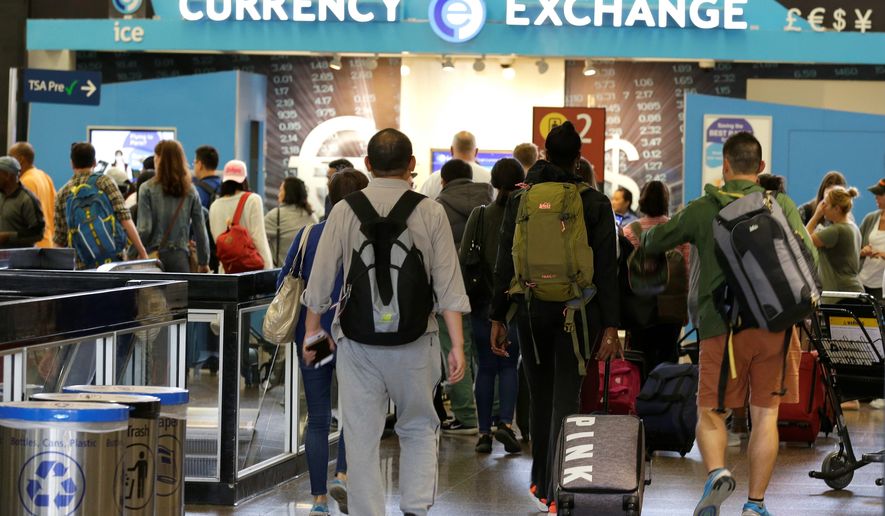President Trump removed Chad from his “extreme vetting” travel ban policy Tuesday, saying the country had made enough strides in cooperating on sharing data and boosting security that its citizens can again be admitted to the U.S.
Iran, Libya, North Korea, Somalia, Syria, Venezuela and Yemen remain on the list — though Mr. Trump said Libya is also making strides toward better cooperation.
Mr. Trump said they considered adding another country, which he didn’t name, to the list, but said for now the nation doesn’t rise to the level of danger that would earn it a place on the ban.
Chad is a majority-Muslim country — one of six that had been on the current banned list.
The president said the country seemed eager to meet the heightened security standards the U.S. has laid out.
“Specifically, Chad has improved its identity-management practices by taking concrete action to enhance travel document security for its nationals, including taking steps to issue more secure passports and sharing updated passport exemplars to help detect fraud. The Government of Chad also improved handling of lost and stolen passports, the sharing of which helps the United States and other nations prevent the fraudulent use of such documents,” the president said in a lengthy explanation of his decision-making.
Scratching Chad from the ban could bolster Mr. Trump’s argument that the ban isn’t anti-Muslim and is instead based on security decisions.
The Supreme Court is slated to hear arguments on the travel ban later this month.
Mr. Trump is on his third version of the travel ban, after his first two suffered defeats in the courts. The Supreme Court has allowed the current version to remain largely in effect, however, while the legal challenges proceed.
Opponents say Mr. Trump’s harsh rhetoric about Muslims during the campaign and some comments he’s made as president prove he’s anti-Muslim, which they said makes his policy unconstitutional.
The administration, though, has taken pains to back up its decision-making with more data. The current version of the ban was released only after the Homeland Security and State departments did a review of global travel rules and cooperation offered by other countries in verifying that their travelers are who they claim to be.
“The removal of travel restrictions on Chad further demonstrates that the criteria set forth in the presidential proclamation can and have worked to enhance the security of the United States. Furthermore, it sends a clear message to foreign governments that cooperating with us can result in mutual security gains, while failure to comply with baseline U.S. information-sharing requirements will result in consequences,” Homeland Security said in a statement.
• Stephen Dinan can be reached at sdinan@washingtontimes.com.




Please read our comment policy before commenting.